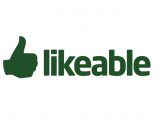Locked down, working from home, and not feeling good; is it the ‘New-Normal-2020’?
Does this sound like you or possibly some people who work for you (with you?)? What’s happening? In this discussion paper, we would like to suggest a way of exploring this new source of anxiety. Let’s look it like this: As an employee, your trust in the organisation starts with the creation of a kind of social agreement. You may have been through a very positive on-boarding programme. With the sudden imposition of home-working, a change far beyond your control, that trust is compromised. You may feel ‘let-down’. Is that what you are feeling? Or you may not know what you feel. Some people who regularly work from home may not feel discomfort immediately. So, where does it come from? Let’s call it ‘Deal-Breaker Anxiety.
You have a contract of employment; a deal has been struck; you do the work and you get paid; simple! The deal however grows over time. It evolves in all the diverse ways that any social group evolves. The working culture re-shapes your identity; everything is connected to everything and everyone to everyone. It is increasingly comfortable. The norms of corporate culture absorption become intuitive, instinctive, unspoken, unperceived. They work without the need to think; and you do the right thing because it’s embedded deeply in your unconscious mind. The social benefits, friendships, sense of humour that makes jokes work in a team, the comfort of knowing what to say, what to wear (what not to wear?) slowly define a significant enlargement of who you are. How exciting is the feeling of achievement of things that people outside the organisation can’t do? In an organisation you can be so much more and feel good about who you are. All this and more becomes part of ‘THE DEAL’.
Most of us working folk never articulate our ‘DEAL’ feelings; we are not conscious of the existence of an assumed ‘enlarged’ deal with the employer. Nor are we conscious of how the additional dimensions and deliverables of ‘THE DEAL’ are intuitively self-created over time (everyone is different). When the deal is broken on the day you start working from home there is lots of other stuff going on. It may to distract you from feeling the shock or the wound. Is it a trauma? In your subconscious mind some of your life assumptions have been invalidated. Part of who you were was based on THE DEAL. Now, in a strange way your persona may seem to have slowed-down. It does not work; bits are missing. Understanding your deeper reactions to suddenly be working from home is difficult when you’re being asked to work ‘normally’ but part of your social infrastructure has been turned off. A phone call is not like a coffee-chat. The deal that was underwriting the person you believe yourself to be has been broken, and with it a piece of yourself has been lost.
I was talking to a psychologist and psychotherapist about the above as a thinking model and asking for some help to flesh it out; perhaps even make it something that can usefully be shared widely with homeworking folk. Perhaps the model might help any individual whose working regime has been brutally rearranged. If you don’t know what has been done to you deep inside, and you think you should be ok because there are no obvious wounds, how do you carry on, knowing that somehow you are not functioning? If you are in a service role, some customers may not be happy; does their discomfort have a different impact on you today? Pondering this deal-breaker model as a thinking tool may introduce some understanding and acceptance. Perhaps you need to grieve for what you have lost so you can move on? Team leaders take note.
A pandemic and a national working from home or isolating directive compromises many things that help organisations function. Connecting the information systems outward from a hub or many hubs is no mean feat and with today’s technology there will slowly be a functioning set of information services piped to every home-worker. The great danger which we wish to illustrate from the above, is that when the networks, e-mail databases, spreadsheets, CRMs, accounting terminals, team collaboration systems are re-connected and reconfigured for remote work, the problem will not have been solved. It’s not a time to sit back; it’s a time to be rebuilding for survival. Now is the time for a re-invented culture that works in the ‘New-Normal-2020’.
It’s important to consider how little of the total connectivity of the corporate ‘organism’ has been recovered by deploying the IT quickly. How much is broken because the culture has stopped working? Observing deeply what has been lost should be worrisome for the leaders from whom the culture and all the social glue exudes!! It’s an intangible corporate asset and as such social capital needs its own form of husbandry. Human beings can’t be removed overnight from the links that keep them sane and effective and be expected to continue to work and create value as they did when properly housed in the hive. (And there are home-based pressures on top.)
If, as we suggest, the deal-breaker discomfort is both cultural and psychological we thought it useful to look for parallels in counselling work. An example which is close in employment terms is the impact of being made redundant. This is an area that has had considerable work and psychotherapy packages are commonly made available by large corporates making large numbers of people redundant. A period of supported grieving is often suggested as a way of recognising a loss, living through the anger, and moving on to an acceptance of a new life (as documented by Kubler-Ross and expanded in HBR: https://hbr.org/2020/03/that-discomfort-yourefeeling-is-grief .). Add to this the Covid-19 health fears. Some people can probably handle this with the support of line managers, friends and colleagues. Some may need something extra.
It is probably obvious to most managers that their staff will need support with home-working. Unfortunately the world has not seen this before so our managers and leaders may be ill equipped to invent and provide the new-normal support. Projecting some positivity and concern, even being caring is to be expected, but will our leaders have the insights/tools to handle their own damaged selves as well?
The experience of this discomfort and bewilderment may show as a shortness of temper in both business and family matters. This disconnection-dysfunction affects everyone differently, but everyone is so affected. Will introverts and extroverts have different experiences? It’s a little more worrisome for those who think that they are not. Acceptance is the place to start, but perhaps people can be forgiven for not having the vocabulary for handling stuff that’s never happened before. A working culture emanates from leaders, and norms are established in speech (F-2-F++). When leadership is needed to nurture a revised culture into being, new scripts, thoughts, feelings and intangibles will be needed. There is also the probability that the old normal isn’t coming back. What is the new ‘truth’ about work in the New-Normal-2020? What’s on offer in the NEW DEAL?
Conclusion
So, if after reading this behavioural model, I hope you can you extract some thinking tools to apply to your situation and articulate how you feel? Can you think about the discomfort of suddenly becoming a homeworker in isolation? Can you recognise that it’s not ordinary loneliness or ‘cabin fever’ or virus paranoia or any of that other stuff? What do you have to say to yourself (or your team) so that you can accept that the deal has been broken by global events, not by your organisation. Perhaps you can then set about building a new view of work and start a NEW DEAL?
Thoughts about a new class of ‘Deal-Breaker Dysfunction’ Compiled for sharing widely to those suffering from various forms of inexplicable working-from-home discomfort compiled by:
David Jefferson, BASc, MSc., FIC, Managing Director, JI Group, Bedford. Experienced senior management adviser to higher education and business, promoting agile CRM and project management. (www.jigroup.co.uk) Richard Jefferson, MSc., B.A.C.P, Psychotherapy, private practice counsellor in London, specialising in trauma and ex-patriate issues like cultural-deprivation. (www.counselling-in-london.com)




